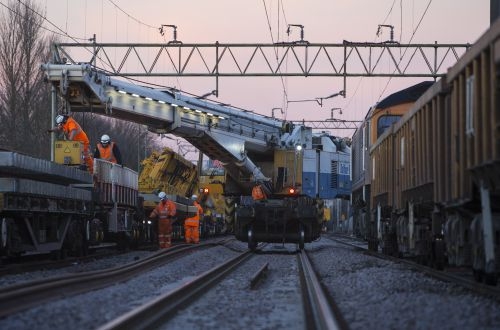Called Track to the Future (T2F), the programme involves academics from the universities of Southampton, Birmingham, Huddersfield and Nottingham. Network Rail will lead an industry partnership which will steer the research and make use of the scientific discoveries.
The programme will also benefit from complementary research activities, including FutureRailway and Shift2Rail. T2F will use facilities in the new National Infrastructure Laboratory at the Southampton Boldrewood Innovation Campus, as part of the UK Collaboratorium for Research in Infrastructure and Cities (UK-CRIC).
T2F is being funded by a £5.2m grant from the Engineering & Physical Sciences Research Council, with the remainder coming through industry support and from the partner universities.
The programme will address some of the issues related to the fact that track is being used more intensively as the frequency and speed of trains continue to increase, while the time available for maintenance is decreasing and pressure is growing to reduce cost and environmental impacts, including noise and vibration. T2F will seek to develop:
- low-maintenance, long-life track with optimised material use
- crossings and transitions that improve vehicle behaviour through them and reduce damage, and
- low-noise, low-vibration track.
"We are addressing these key challenges through state-of-the-art experimental and analytical techniques, and the integration of advanced behavioural models in the areas of geomechanics, track systems, vehicle dynamics, noise and vibration," says Professor William Powrie, from the University of Southampton who is the lead academic on T2F. "By extending our scientific knowledge and developing new analytical tools, we will make it possible for engineers to design railway track systems that give longer, more reliable service at much reduced cost."

